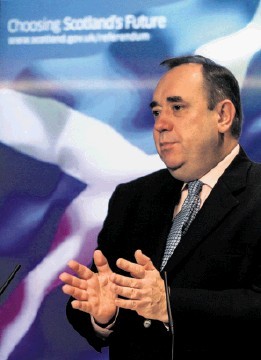
There have been a surprising number of reports in recent weeks on future government revenues from UK oil and gas production. The authors include the UK Treasury and Office for Budget Responsibility (OBR), the Scottish Government, Oil & Gas UK and academics from Glasgow University.
It is a political hot topic because of the Scottish National Party’s plans for the independence referendum in September 2014. The SNP believe that future oil revenues will underpin the Scottish economy. The pro-UK political parties are much more sceptical.
I have read all the reports in detail and must say that the general standard is disappointing. There is also a very wide range of forecasts.
In his latest budget, Chancellor George Osborne gave the official forecasts of government oil and gas revenues produced by OBR: £6.5billion in the 2012-13 financial year, £6.8billion in 2013-14 and then declining to £4.3billion in 2017-18.
In contrast, the Scottish Government’s forecasts are much higher. It has produced a range of predictions and the most optimistic one shows annual revenues about double those of the OBR. The five scenarios show total oil revenues over the next six years ranging from £31.3billion to £57.1billion.
I frequently produce forecasts of UK oil and gas production, and also the associated expenditure, but have avoided getting involved in the political arguments about future oil revenues. Forecasting can be difficult but should be done as rigorously as possible, which unfortunately is not the case with some of the recent forecasts.
The situation can be explained by the following simple equation
o production x prices = gross revenue – costs = net revenue – government taxes = profits
The two key variables are undoubtedly production and prices. A thorough analysis should cover both oil and gas, but in relation to government revenues the latter is relatively unimportant so is often ignored.
There is little doubt that the general trend in UK oil and gas production is downward. We have produced hydrocarbons from the North Sea for over 40 years now and many fields have ceased or are nearing the ends of their productive lives. The average annual decline in recent years has been about 7.5% but there was a massive fall of about 30% in 2012.
There were unusual problems last year, however, such as unforeseen shutdowns of fields such as Elgin/Franklin.
Fortunately, there is currently a very high level of investment in both new field developments, such as Clair Ridge, Golden Eagle and Mariner/Bressay, with sizeable projects Rosebank and Bentley in the offing; plus redevelopments now under way such as Schiehallion (now Quad 204) and Monarb, with significant sums still being spent on Forties and Beryl about to receive attention. Output from these will come onstream over the next few years.
However, there are differing views as to whether this will reverse the decline in production or just slow it down. The Oil & Gas UK and Scottish Government reports are optimistic but the OBR and UK Treasury are pessimistic.
Personally, I am somewhere in the middle. Nevertheless, any improvement will be temporary and the long-term trend – say after another five years – must inevitably be downwards.
The second key variable is oil prices. These have been volatile over the last decade, with Brent crude ranging from $25 to $140 per barrel.
However, in recent years prices have been much more stable in the $90-110 range and many oil economists, including myself, expect that to continue for the foreseeable future. There will inevitably be short-term fluctuations, notably in response to political events in the Middle East, but the supply and demand fundamentals suggest relative stability.
Nevertheless, there is the complication of the sterling/dollar exchange rate because oil is priced in US dollars. The pound has fallen by about 20% against the dollar over the past year and could fall even further if our economic woes continue. UKCS costs are mainly in pounds sterling.
There is an excellent analysis in Oil & Gas UK’s latest Activity Survey 2013 of the upward cost trends on the UKCS. The clear implication is that the costs and prices will have an increasingly negative impact on UK oil and gas revenues.
Future revenues will obviously be a very important issue in Scotland over the next 18 months. Forecasting them is difficult but can – and should – be done much better and more rigorously than in these recent reports. Unfortunately, serious economic analysis has been damaged by political point scoring.
Tony Mackay is the MD of energy economists Mackay Consultants
Recommended for you
